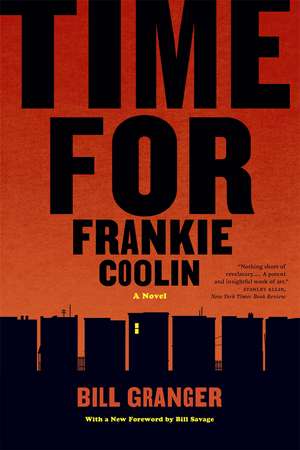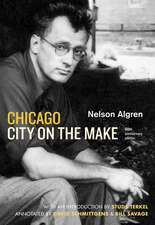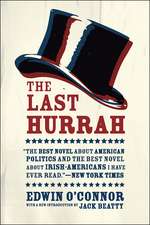Time for Frankie Coolin: A Novel
Autor Bill Granger Cuvânt înainte de Bill Savageen Limba Engleză Paperback – 24 noi 2014
Time for Frankie Coolin tells the story of a plasterer turned landlord in Chicago who, in the late 1970s, buys abandoned buildings and makes them just habitable enough that he can charge minimal rent to his mostly black tenants. Frankie—both a tough guy in the trades and a family man—has done well by his wife and kids, moving them to a house in the suburbs. But a casual favor for his wife’s cousin—allowing the man to store some crates in an empty building—and a random act of arson set in motion a cascade of crises, including a menacing pair of G-men and the looming threat of prison if Frankie doesn’t talk. But since talking has never been one of Frankie’s strengths, he copes as he always has: by trying to tough it out on his own.
Calling to mind such gritty poets of the urban scene as George V. Higgins and Nelson Algren, Time for Frankie Coolin is both a psychological thriller and a ’70s Chicago period piece that shines a surprisingly sympathetic light on the often ignored stories of the people who lived, worked, and died at the city’s margins.
Preț: 154.07 lei
Nou
29.49€ • 30.67$ • 24.34£
Carte tipărită la comandă
Livrare economică 14-28 aprilie
Specificații
ISBN-10: 022620264X
Pagini: 288
Dimensiuni: 140 x 216 x 18 mm
Greutate: 0.33 kg
Editura: University of Chicago Press
Colecția University of Chicago Press
Notă biografică
Recenzii
Descriere
Known as much for his journalistic reporting as for the fiction he wrote under a variety of pen names, Bill Granger combined his divergent talents in his powerful novel Time for Frankie Coolin. With distinctive voices, compelling characters, on-the-ground observation, and suspense, it offers a serious, illuminating take on the changing tides of race, class, and politics in late twentieth-century Chicago.
Time for Frankie Coolin tells the story of a plasterer turned landlord in Chicago who, in the late 1970s, buys abandoned buildings and makes them just habitable enough that he can charge minimal rent to his mostly black tenants. Frankie—both a tough guy in the trades and a family man—has done well by his wife and kids, moving them to a house in the suburbs. But a casual favor for his wife’s cousin—allowing the man to store some crates in an empty building—and a random act of arson set in motion a cascade of crises, including a menacing pair of G-men and the looming threat of prison if Frankie doesn’t talk. But since talking has never been one of Frankie’s strengths, he copes as he always has: by trying to tough it out on his own.
Calling to mind such gritty poets of the urban scene as George V. Higgins and Nelson Algren, Time for Frankie Coolin is both a psychological thriller and a ’70s Chicago period piece that shines a surprisingly sympathetic light on the often ignored stories of the people who lived, worked, and died at the city’s margins.









